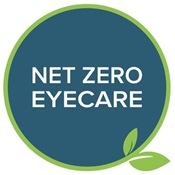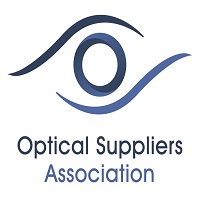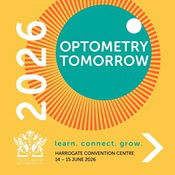General News
Will the end of the pandemic bring forth a new start for Optics UK?
Will the end of the pandemic bring forth a new start for Optics UK?
Could the double whammy of disruption of supply and service of both Covid-19 and Brexit spell disaster to some in the vision care sector or act as a stimulus to recovery and doing things better and differently in the “New Normal”
We asked key opinion formers, heads of the membership groups you contribute to, heads of the Colleges and regulatory bodies and respected members of the sector.
Overview

We know there are desperate times ahead and we are currently experiencing the worst of the pandemic over the next 2 to 3 months but let us hope that the vaccine remains effective and is rolled out with the same efficiency that it was designed, checked and verified in its creation.
The NHS has never been known for its ability to change speed or course despite the pressures around us, but we have had fair warning of the needs of the Nation for efficient expedition of the vaccine.
Primary care needs to prove it plays a vital role in supporting secondary care and gain some brownie points. In past years there has been a dramatic increase in secondary care medical staff but not in Primary Care where GP numbers remain stubbornly static.
However, being optimistic what our sector needs to reflect on is, how best we can improve the service to the public post pandemic.
Has the pandemic taught us any lessons? Has our changed working patterns adjusted the way we work with other professions and secondary care? Is it time to remove professional boundaries? Often instigated by regulatory bodies as part of their required remit and often supported by factions of the professions who see ringfencing of competencies a safe way to retain jobs and members.
Most pandemics and wars create an opportunity for change to happen. What will Optics UK and other professional bodies consider to be a significant step forward for 2021.
Bob Hutchinson PHN CEO
We asked those charged with leading those groups for a preview of things to come.
From Sir Tony Garrett, General Secretary, ABDO.
2021 and beyond.

Everyone hopes that 2021 will be a lot better than 2020 but it is still going to be a tough year. It is too early to assess the long term impact of Covid-19 on the sector but clearly there will be the chance to capitalise on the great professionalism and resourcefulness shown by so many in the profession over the past few months.
During 2021 ABDO will be developing our new five year strategic plan to come into effect from January 2022. One of our key objectives will be to seek to extend our scope of practice and to be in a position to exploit the rapid changes that will come over the next few years.
The sector needs to help shape the regulatory environment of the future. A serious discussion needs to be had at some stage with all stakeholders about the need for a sector specific regulator or being part of an overarching and perhaps more objective one.
Recovery from the pandemic will be the top priority for everyone for most of 2021, wider changes in the sector will almost certainly be on hold until
2022 at the earliest.
Tony
From Huntly Taylor, Master, Worshipful Company of Spectacle Makers:

For almost 400 years members of our Company have played an important role in their communities…perhaps never more so in 2020.
Eye health professionals across the field have come through the challenges of the last year with greater experience and new ways of working but still grounded on a strong and continuing concern for the preservation and improvement of vision.
There are many examples of people who have gone beyond their usual roles to push forward on technology and research, as well as the many local heroes who have looked after neighbours and vulnerable people.
We should be grateful to everyone who has worked so hard.
We all know how important it is for patients with sudden or serious vision problems to be seen without unnecessarily delay and how important it is for people with impaired vision to be able to live their lives.
However Covid has caused immense pressures right across the vision care and sight loss sectors. The pandemic has brought into focus the need for support systems we all call upon from time to time but didn’t think much about before healthcare is required. Days out enjoying sport or culture and just plain, simple human contact with friends.
Let’s hope that in 2021 and into the future we will make time to treasure those things.
I can’t wait to welcome Liverymen back to events at Apothecaries’ Hall and to show the world how proud we are to be ‘People of Vision’.
Huntly
From Stuart Burn Chairman FMO
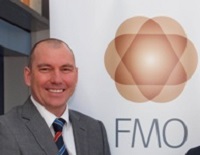
There’s no question we have been and still are facing one of the most challenging periods in our lifetimes and of course not just in our professional lives.
COVID-19 has ravaged the entire world throughout 2020 and at the time of writing, it looks likely to continue throughout most, if not all, 2021.
However, I believe the optical sector particularly at practice level has risen to the challenges presented by COVID-19 and demonstrated an immense ability to quickly adapt and in so doing has also demonstrated both resilience and fortitude.
Another by-product of this adaptability is the team work and comradery that has been seen in abundance from small teams up and down the country. Practices have been faced with extraordinary tests during 2020 and the willingness of staff to adjust and modify their working hours and working practices in order to help patients has been one of the highlights for me.
I have also been impressed with the practice owners who are the ones who have led this battle (and it has been a battle) with their drive, tenacity and enthusiasm to rework, revise and recalculate how their practice can, not only, endure but deliver excellence in eyecare. It is their focus on their patients’ needs that has driven a remarkable team performance from practice to practice across the UK and Ireland. I am sure in many cases it has come with an increase in alcohol intake but make no mistake practice owners have risen to this challenge and shown a remarkable set of skills in order to ensure patients are cared for and looked after.
We spend much of our time critiquing and looking to improve and once and a while it does us all good to take stock of position and congratulate ourselves on a job well done, and in this case under the most intense of pressures.
So whilst there has been a lot to learn from this pandemic and I’m quite sure more to come over the coming months, I think now is the time to reflect and give ourselves a rejuvenational ‘shot in the arm’ mentally. We are not out of the woods quite yet but lets face the forthcoming challenges head on with the same spirit, passion and gusto as we have all demonstrated so abundantly.
2021………….bring it on.
Stuart Burn – Chairman
Federation of Manufacturing Opticians
ACLM View for 2021 Sec. Gen Simon Rodwell
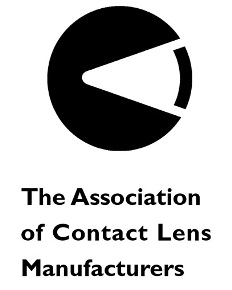
With 2020 and the Brexit transition behind us, it is essential that the sector makes the most of the huge opportunity for change created by the turmoil.
Underfunding will likely continue for many years and so we need to look radically for new ways of working and not just focus on rebuilding the old structures.
Patients have become very accustomed to online supply, and there is no prospect of reversing that trend, and so the high street needs to expand its own online sales channels across the board, as well as increase the number of sight tests and revive initial contact lens fitting.
Having been starved of personal contact for too long, patients may well be more open to visiting a practice – but likely with pre-conditions: it has to be safe, it has to be a positive experience, it has to be easy, quick and efficient, without pressure, at a good price, with plenty of choice, and with an eye care professional who communicates well and fulfils any unmet needs. It is a big challenge.
Pretty much all the reasons why people continue to visit, or not, their optician have been explored and written about in detail over the years, but the percentage of contact lens drop-outs remains unacceptably high.
This is a wasted opportunity because it shows that there is ongoing consumer interest in contact lenses, but we all know it is not being maintained.
Nothing is better for growing customer loyalty overall than keeping patients for the whole contact lens prescribing and wearing cycle, as proven by the London Business School study, and manufacturers are always keen to help achieve this.
For too long the sector has underestimated the internet and its effect, but the reality has been brought home by the pandemic. Moves to relax the supply rules are just playing into its unregulated hands and the petty divisions within the sector are accelerating that trend. Online technology presents an imminent danger to the high street as clearly highlighted in the excellent and widely distributed Foresight
Report of 2016 (https://www.abdo.org.uk/news/foresight-project-report/).
In the 4 years since its publication have we honestly done all we can to prepare for the future?
At a time when our high streets and network of hard working practitioners have never been more at risk due to COVID-19 and the growth of online supply, and in line with the aspirations of a new and independent UK, we need to cut away bureaucracy, endless documentation and non-essential regulations with vigour. With a new Medicines and Medical Devices Act in the making we should also seize the long-overdue opportunity to update the Opticians’ Act and reinforce patient safety.
It hasn’t always been easy to identify the real common strategic issues and present a sector wide position and response but surely the current threat of deregulation and illegal online supply is plain for all to see. It is our belief that the Optical Confederation should be revived so that the sector actually can have a clear strategic position on key issues. Unless we rebuild it, and collaborate wholeheartedly to give it the support it deserves, the sector risks being swept away by the bigger market forces outside optics.
Simon
More contributions will be published here during this week.











